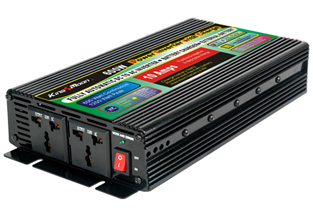
A hybrid inverter is an innovative energy management device that combines the functions of a traditional inverter with that of a battery inverter. This type of inverter allows you to utilize solar energy while also managing energy stored in batteries, effectively optimizing both generation and consumption. By integrating various energy sources, hybrid inverters play a crucial role in the transition to renewable energy, providing flexibility for households and businesses alike.
Hybrid inverters are designed to convert direct current (DC) from solar panels into alternating current (AC), which is used to power appliances and devices in homes and businesses. Unlike conventional inverters, hybrid models can also charge and discharge batteries. When solar energy is available, the hybrid inverter uses it to power the home and charge the batteries. If there is excess energy, homeowners can even sell it back to the grid. Conversely, during peak hours or when solar energy is not available, the inverter draws power from the batteries to maintain a constant energy supply.
One of the most significant advantages of hybrid inverters is their ability to enhance energy independence. By combining solar energy generation with battery storage, users can significantly reduce their reliance on the grid, especially during peak rates. Additionally, hybrid inverters offer extreme versatility, as they can work seamlessly with both solar systems and conventional generators. This flexibility makes them an ideal choice for remote locations where grid access can be inconsistent.
The adoption of hybrid inverters contributes significantly to reducing carbon footprints. By harnessing renewable energy sources, users can decrease their reliance on fossil fuels, promoting a cleaner and more sustainable environment. Furthermore, the ability to store excess solar energy reduces electricity waste and supports efficient energy consumption, paving the way for a more eco-friendly energy future.
As the demand for sustainable energy solutions grows, hybrid inverters are becoming increasingly popular for both residential and commercial applications. Their capacity to optimize energy usage, combined with their environmental benefits, makes them an essential component of modern energy systems. Whether you aim to reduce energy bills, enhance energy independence, or contribute to environmental sustainability, hybrid inverters represent a practical and forward-thinking investment for the future.
Next:Harnessing Solar Energy A Guide to Integrated Photovoltaic Off-Grid and Grid-Tied Energy Storage In
Previous:The Function of Frequency Mixing in Inverters An Insightful Overview